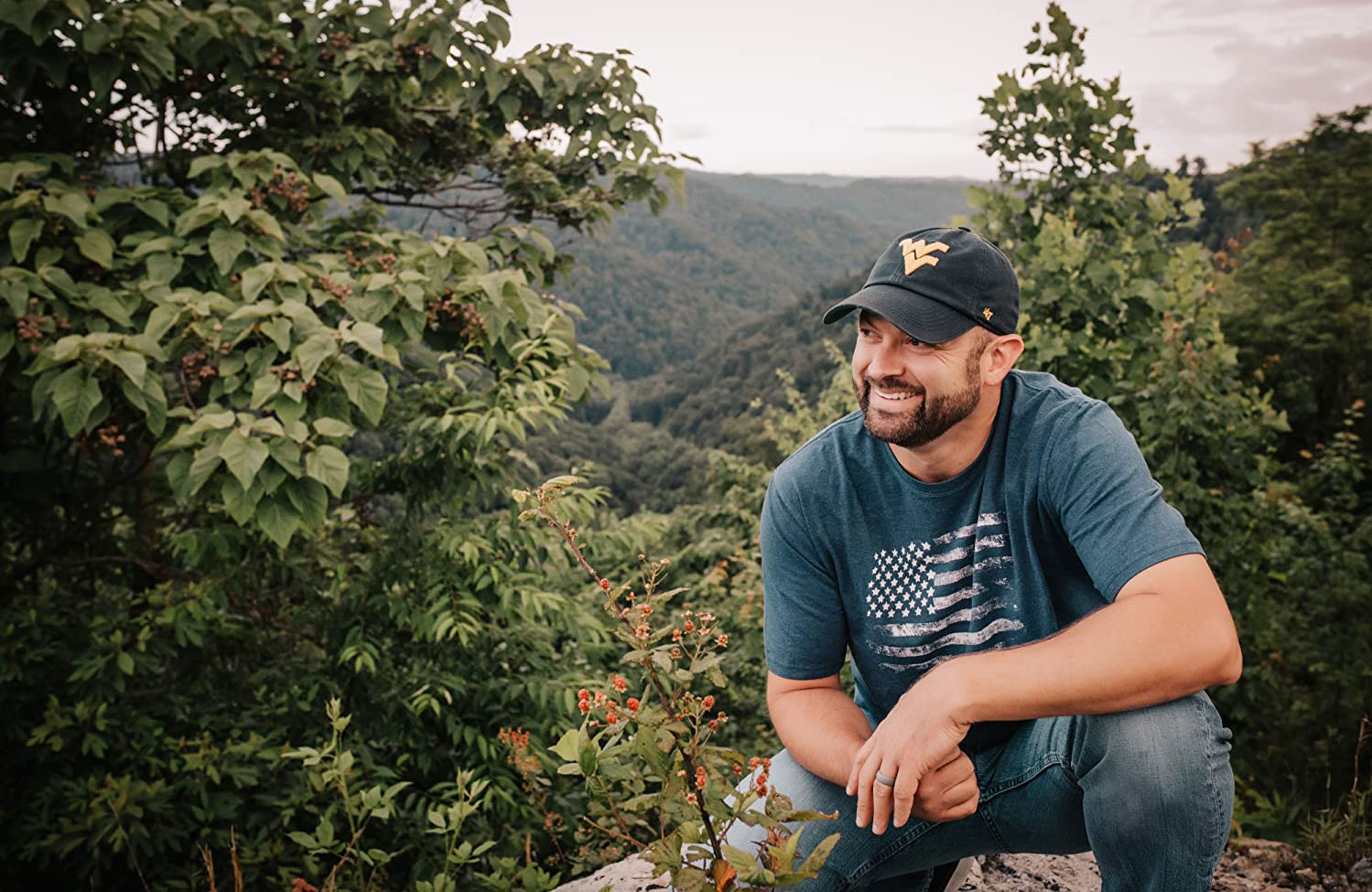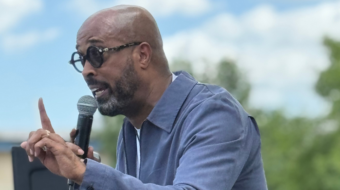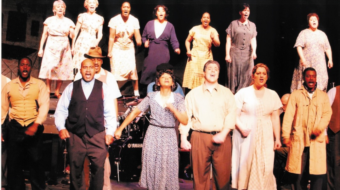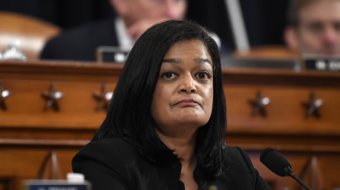
Perhaps 2016 Democratic Presidential candidate Hillary Clinton’s biggest mistake—if you don’t count her never setting foot in the state of Wisconsin to campaign—was the remark she made at a town hall meeting that March in Ohio. She was speaking about a future of replacing fossil-fuel energy with renewable sources. She spoke of bringing “economic opportunity using clean renewable energy as the key into coal country.” Continuing, in words that would fatally haunt her for the rest of the campaign, she added, “Because we’re going to put a lot of coal miners and coal companies out of business.”
Those tone-deaf words got picked up and recycled in endless loops, putting the fear of permanent joblessness and the wiping out of whole coal-based communities from the map into voters’ hearts.
What rarely got reported was her immediate follow-up statement of support for the miners and others who brought us the nation’s energy. “We’re going to make it clear that we don’t want to forget those people. Those people labored in those mines for generations, losing their health, often losing their lives to turn on our lights and power our factories. Now we’ve got to move away from coal and all the other fossil fuels, but I don’t want to move away from the people who did the best they could to produce the energy that we relied on.”
She wound up winning 26.43% of the vote in West Virginia. Donald Trump took an overwhelming 68.5% of the vote—many of his voters from the depressed rural coal country. “Trump Digs Coal,” read signs at his rallies.
During a visit to West Virginia, Clinton hosted a roundtable conversation that included laid-off coal miner Bo Copley, who challenged her on her energy policy and how it would affect his family and community, and indeed the whole economy of the state. News media were present, picked up on Copley’s raw emotion, and turned him into an overnight local celebrity and regular on cable news. Copley parlayed that moment into an unlikely run in the Republican U.S. Senate primary in 2018, hoping he would win and go on to challenge sitting Democratic Senator Joe Manchin.
Although severely strapped for resources, with his family hovering on the economic edge, and with no prior experience in politics, he managed to cobble together a campaign of sorts, managed by Jaryd Crum, an attorney from nearby Kentucky. Somehow or other, film director Todd Drezner came on board, smelling a quirky, telling story of Appalachian spunk. The Campaign of Miner Bo is the 74-minute result.
Major spoiler here, sorry, but Bo loses his bid for the GOP Senate nomination. Nevertheless, at the end he muses about a possible political future for himself—in which case, a full-length documentary film about him certainly couldn’t hurt. Otherwise (that is, without this film), Bo Copley would barely qualify as an “also-ran,” a human-interest curiosity quickly forgotten in the turbulent stream of history.
So what did Bo Copley stand for? Part of the appeal of this story is the media’s attempt to fathom why so many working people in Appalachia and across the country were mesmerized by Donald Trump and his faux “outsider” pose, when he had essentially nothing to offer them but racial pride. Those folks also felt left out of the national policy conversation, failing to have what Bo for a brief moment found, a seat at the table. But other than standing up to the political big shots, what was Bo all about?
A lifelong resident of Mingo County, W.V., Copley worked in the coal industry for 11 years until he was laid off in September 2015. On the campaign trail, his status as a “miner” was challenged, because, in fact, he himself had never wrenched a single lump of coal from the earth. His grandfather owned a small mine, and Bo had worked in the front office, and for some time as a foreman. He defended using the term because the coal industry was all he’s ever known, and his whole community and region are tied to it.
The film does not raise the issue of whether or not the mine where Copley worked was unionized, nor whether he would have been eligible to be a member if it were. In fact, the subject of the Mine Workers’ Union never comes up. Now, if I were a miner, or even a “miner”-adjacent running for office, the first step I’d take would be to march straight into union headquarters to ask for their endorsement—prepared, of course, with a program of ideas that organized miners might like. I’d also seek out other mass organizations for their support. Copley did none of that.
Copley’s “base,” then, was just an amorphous, uncoordinated feeling of social abandonment—widespread but feckless.
The presence of union does show up, though, and it’s the Teachers’ Union. During this campaign season, public schoolteachers struck all across the state that February demanding higher pay, better support for the students, and respect for their profession. Copley goes out to the picket lines, where he reminisces fondly about his high school English teacher and seems sympathetic toward the teachers’ demands. But he falls short of supporting the strike, citing “too much partisanship,” circuitously postulating that there must be some other way to address the problems teachers are facing. So, in any practical or measurable way, he’s not really on labor’s side in this fight at all.
But he is shown fraternizing at a pro-Trump rally. Copley has nothing to say about the Trump agenda, in particular about the fraudulent “tax reform” passed by a trifecta Republican government in 2017 that gave zilch to the proud working people Copley is ostensibly speaking up for. He does argue against “over-regulation,” which is, of course, a standard corporate GOP talking point designed to make the working person’s job dirtier and less safe. The filmmaker, to his great discredit, makes no effort to place this Republican campaign in the context of the Trump Revolution. Suppose, by some fluke, Bo Copley did make it to the Senate? One can only imagine how soon and how thoroughly he would cave to the corporate lobbyists swamping his waiting room every single day.
The only other reference to Trump has to do with one of the other Senatorial aspirants in the race (six in all)—none other than mine owner Don Blankenship, newly out of jail after being convicted of killing 29 miners in an accident that could have been prevented with proper safety inspections. Blankenship proudly boasts he’s “Trumpier than Trump.” Copley waffles on whether or not he’d support Blankenship if he won the primary. He “has blood on his hands,” Copley admits, so maybe he’d cast a write-in vote.
In the end, perhaps Copley’s campaign had less to do with seriously entering political life than it was about validating his own sense of self-worth after two years of unemployment. He is intensely religious, deeply embedded in the Evangelical camp, and says he ran because God told him to. “I can’t separate my faith—it’s who I am,” he says. “I have the endorsement of God” and “I promise to put God first.” This must make him feel very special, but God must have had other plans for Bo—he came in with less than 5% of the vote.
With his fantasies of support from On High, Bo’s imagination runs woefully short as to the future. “The people in this state have no future beyond today without coal,” he states—a standard GOP talking point despite the fact that coal will never ever come roaring back when so many newer forms of renewable energy are cheaper and in so many ways more desirable. Yet, he dreams of “opportunities for children where they are, and not condemned to a life they don’t want.”
These sound like contradictory statements, as if he is channeling both Trump and Clinton at the same time, but they are emblematic of an unfocused campaign without a natural base of support that he Quixotically sought to conjure out of so many people’s despair.
Who can say if the campaign changed Bo Copley as a man, or as a possible future candidate? A radio host who finally got around to giving him some airtime toward the close of the campaign asked him why he set his sights so high the first time out—on a Senate race? Why not run for state representative or state Senate, or in a local race where he was known and that wouldn’t be so costly? Good advice, that Bo rejects: “I’m not a robot,” he replies. I wish some of these third-party candidates who run for president “out of principle” would start heeding it!
Viewers will draw their own conclusions about this little window into West Virginia life. The scenery is lovely in places, the hardscrabble downtown areas of these small towns paint a picture of economic depression, the music is well-chosen. News reporters and media clips, historians, and academics fill in some of the background. One can empathize with Bo and his wife Lauren and the three kids and lament the low ceilings hanging over their lives. At the same time, one must recognize that his politics are a mess of inarticulate and unexamined double-talk that offers nothing of substance to working people.
The film releases October 6 On Demand. World Channel will screen it Oct. 19 at 4:00 pm PT, 9:00 pm PT, and October 20 at 5:00 am PT. Later it will screen in major cities. The trailer can be viewed here.










